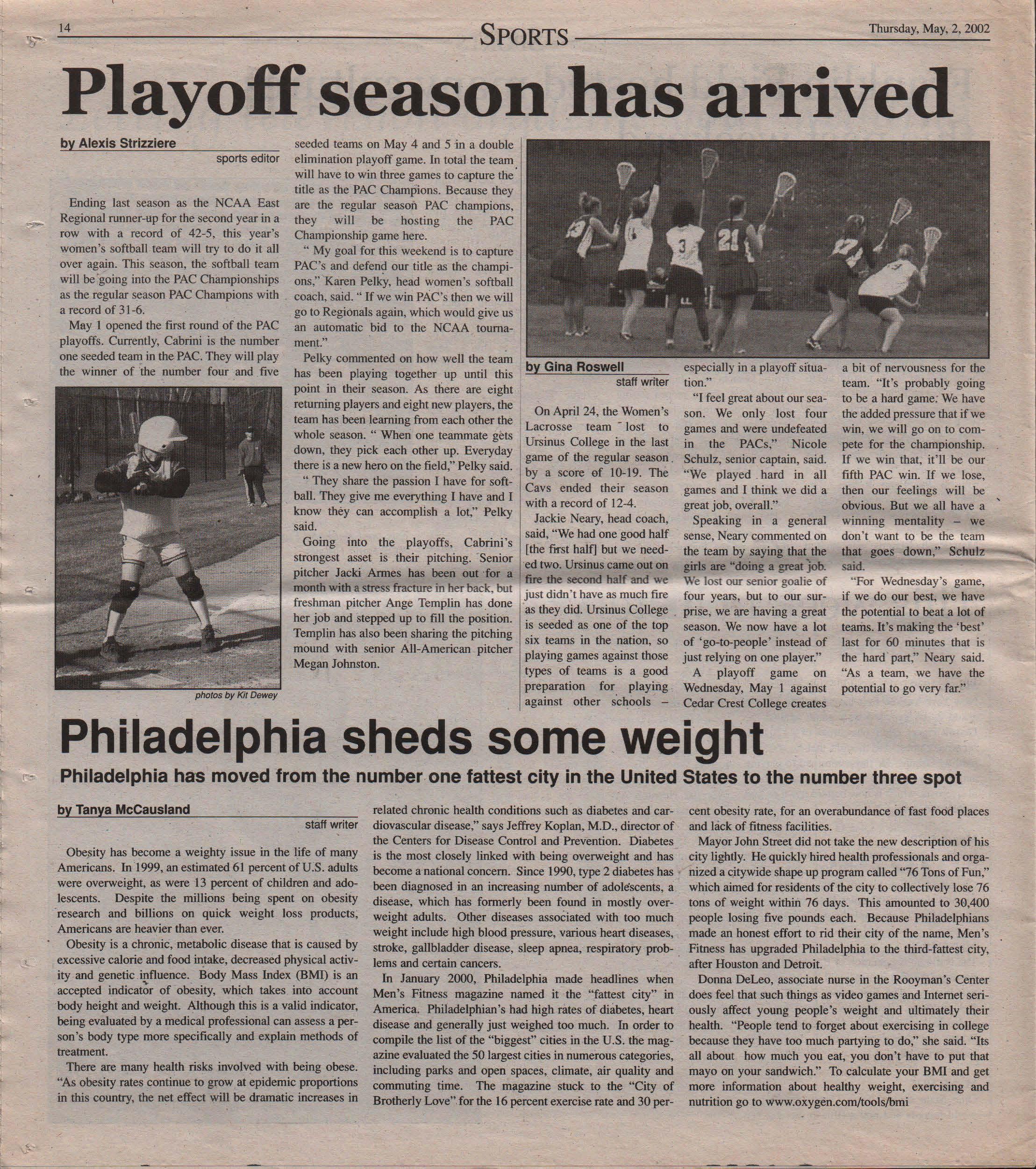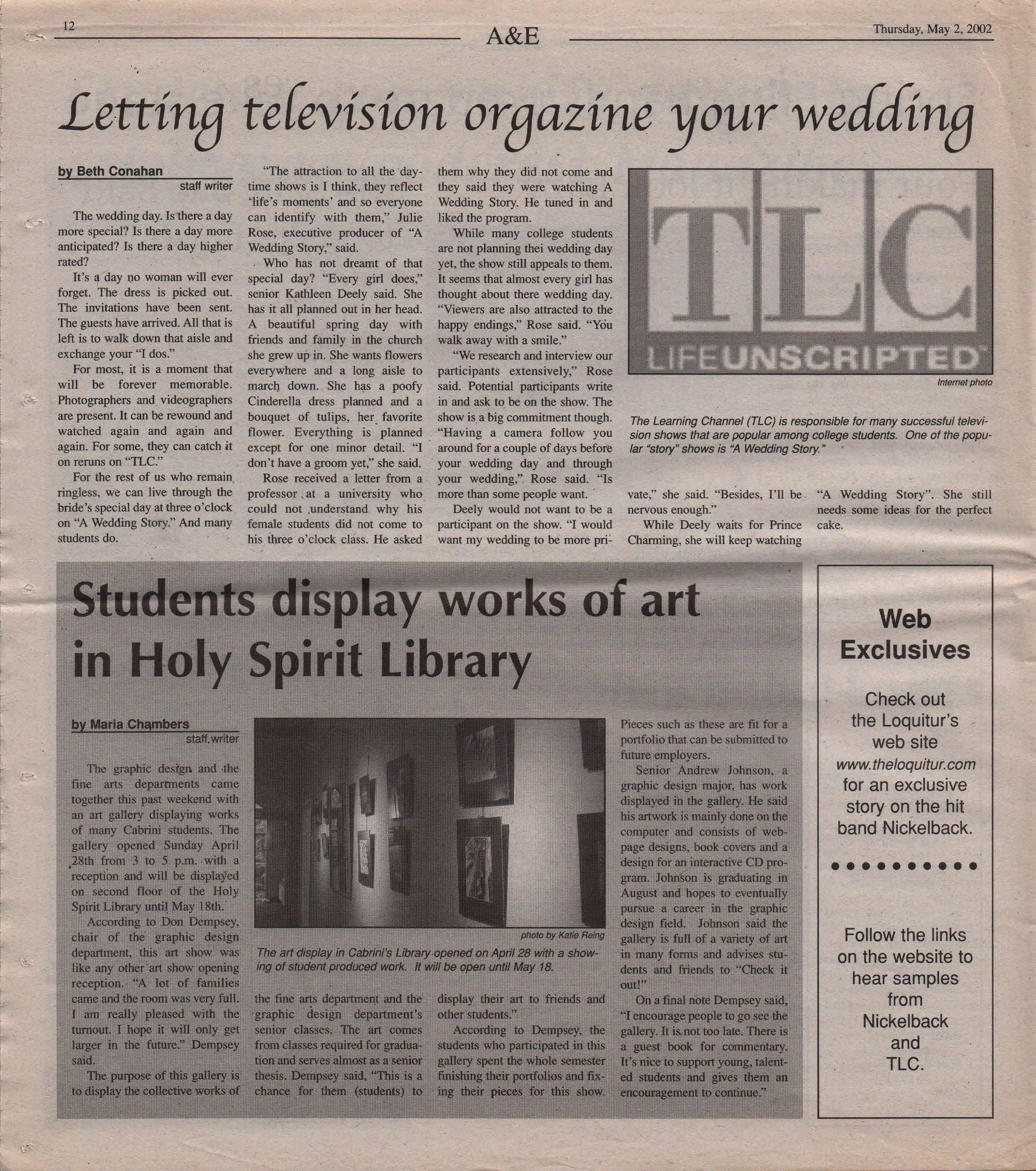
2 minute read
campuses around U.S.
BINGE, from page 1
Binge drinking does not only affect the drinker, it also affects the people around them. Many times the friends of the drinkers find themselves looking after the drinker.
Advertisement
People who frequently binge drink are 21 times more likely to miss class, fall behind in school work. damage property, be hurt or injured, engage in unplanned sexual activity, not use protection when having sex, get in _trouble with campus police and drive a car after drinking.
Cabrini's punishment system is different than most colleges. Instead of just paying a fine for their wrong doing students who are written up must either write a paper or do some sort of community service. The school wants the students to be affected by their drinking. Instead of just paying a fine the papers or community service is intended for the student to reflect on what they have done and whether or not they will do it again.
"We try to impact drinking by confronting inappropriate behavior. The biggest support is form other students though," Carpenter 1?aid.
Alcohol problems at universities and colleges are nothing new and now some schools are doing something about it. Penn State University is one of those schools.
• Sun: 1 p.m. - 1 a.m. *
• Mon-Thur: 8 a.m. - 1 a.m.*
• Fri: 8 a.m. - 8 p.m.
• Sat: 9 a.m. - 4 p.m.
1 *Circulation and reference will only be available until 10:30 p.m.
Penn State University has a program on its main campus to prevent alcohol abuse; the program is called the Alcohol Intervention Program. Maureen Casey, sophomore at Penn State's, said. "The new program (AIP) can be seen all over campus."
Elizabeth Mitchell, sophomore, agreed with Casey. Mitchell said, "There are two magnets on my refrigerator and stickers on bathroom stalls. The program is known by just about everyone, students are very aware."
The AIP, accord_ing to Penn State's website, is an educational program that facilitates decision making bout alcohol uses. There are tra,ined facilitators, who conduct meeting, which focus on accurate alcohol information, personal attitudes and drinking behaviors.
Casey talked about the school's drinking problem. She said, "Students are given two chances and if they are caught a third time, they are done. The first time they are caught, they immediately have to attend an AA meeting and talk to their adviser. The second time they are caught, they have more meetings to attend. The third time they are gone."
Elizabeth Mitchell said, ''The public safety is extremely lax. State College is basical)y-e-drilllting town so the public safety is more lenient. You won't get arrested, written up or fined if you are drinking. If you get sick, the public safety will drive you home." •
Although Radnor isn't necessarily a drinking town, Mr. Carpenter feels as though Cabrini has a very liberal outlook on drinking policies on campus. "Cabrini's policies are average," Carpenter said. Neighboring colleges such as LaSalle University and West Chester University both use uniformed police officers to serve as public safety.
"Drinking has i;noved back from Saturday night to Friday night to Thursday night," Mark S. Goldman, director of the Alcohol and Substance Abuse Research Institute at the University of South Florida, said.
As drinking rates rise, so does the amount of money students spend on alcohol. On average, students spend about $5.5 billion on alcohol every year. On average the same could be said about the damage alcoholic rages cause to the drinking environment.






